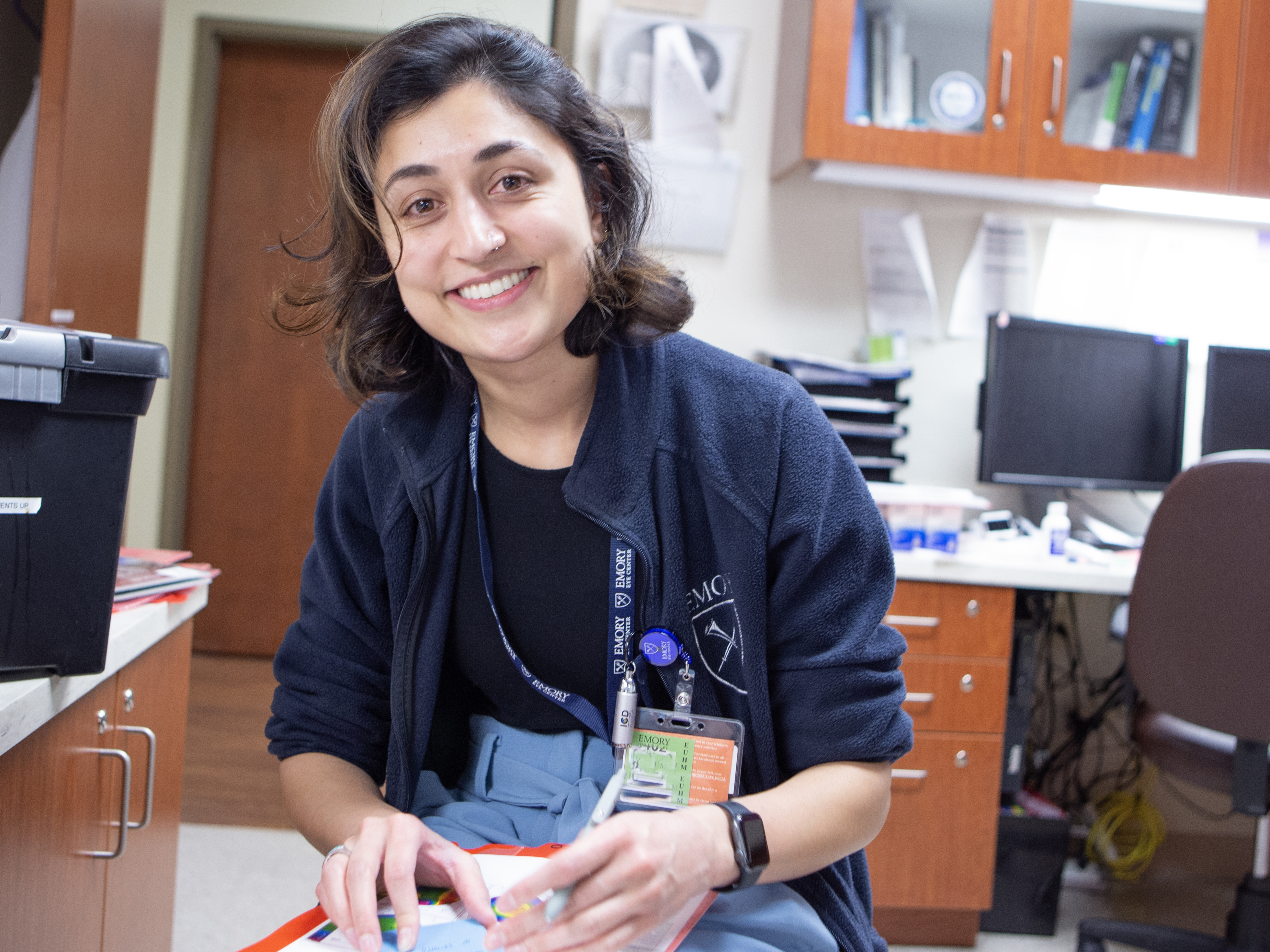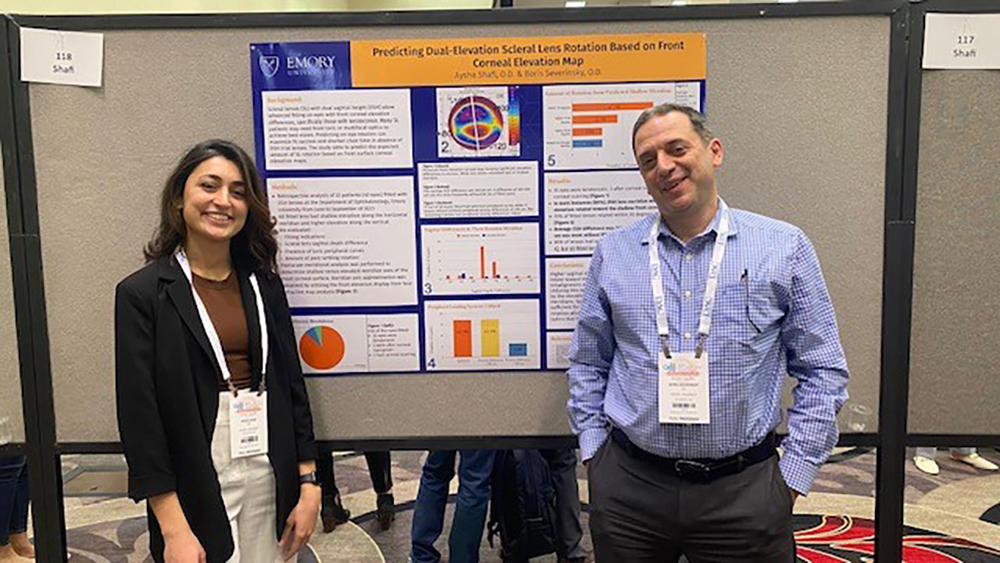
If Boris Severinsky, OD, FAAO, FBCLA, FSLS ever had any doubts about Emory Eye Center’s first optometry resident, Aysha Shafi, they were put soundly to rest earlier this month when he read the latest edition of I-Site, an international specialty contact lens newsletter.
The publication singled out only four of 155 posters that were presented at the 2024 Global Specialty Lens Symposium this past January. His resident, Shafi, was the lead author on two of those posters: “Therapeutic Applications of Scleral Contact Lenses in Ocular Cicatricial Pemphigoid,” and "Predicting Dual-Elevation Sclearal Lens Rotation Based on Front Corneal Elevation Map."
“It’s impressive and a great achievement for a young doctor to be featured in an international newsletter,” said Severinsky, himself, a world-renowned expert in specialty contact lenses.
When we caught up with Shafi, she was clearly pleased to hear her mentor’s praise. But she didn’t stop to revel in it. She was coming off a busy 8-hour clinic shift and was getting ready to catch a plane to California, where she was interviewing for a optometrist position in an academic medical center. On her office desk sat a muffin that she vowed to eat for dinner (on her way to the airport).
The day left her a little breathless, but Shafi was eager to talk about the next steps in her career.
“If I can practice in an academic medical center, I won’t have as many limits in the types of lenses I can work with, which is important. I want to be able to do a lot of custom [lens] modifications. I also want to have access to up-to-date research. And most [optometry] schools won’t let you teach unless you’ve had a residency. Eventually, I’d like to be able to teach.”
Though drawn to clinical research, Shafi says she chose optometry because she sees the potential for having an impact on patients’ lives over the long term.
“As an undergrad, I shadowed my optometrist to see what the field could offer me. I remember one of her patients had been coming to this doctor for 30 years, and [the patient] couldn’t speak more highly of their relationship. It was impressive, the community [the doctor] had built through that practice.”
Shafi said the clinical focus of her Emory residency – cornea and specialty lenses – offers the opportunity to maximize her impact on patients’ lives.
“Optometry obviously has limitations on what you can treat and not treat,” she explains. “But infections of the cornea -- like conjunctivitis or a corneal ulcer—are generally treatable [by an optometrist]… And I like the fact that, with scleral lenses, I can give a patient immediate relief, noticeably better vision, often without waiting. That's what makes specialty contact lenses a uniquely fulfilling focus for this residency. And I am able to collaborate with other providers about the potential benefits-slash-cons of further surgeries or procedures.”
Shafi says her Emory residency has exposed her to a wider variety of complex conditions and diseases that she may see as a working optometrist – situations that may or may not require medical referrals. The residency also gave her a chance to follow-up on patients’ conditions, something that doesn’t always happen with even the best rotations. All of the studying in the world can’t replace what she’s gained from that.
“For me, I want to learn everything I can about [lens] fitting management and disease management so that I am the best doctor I can be,” she said. “I am excited about where I can go from here.”
-Kathleen E. Moore


